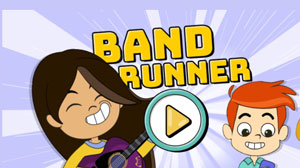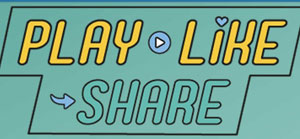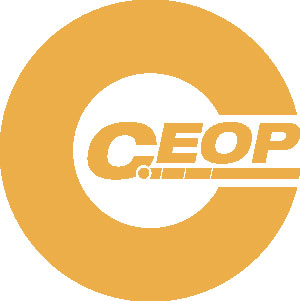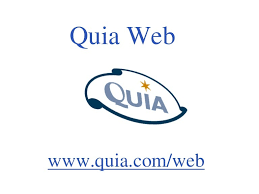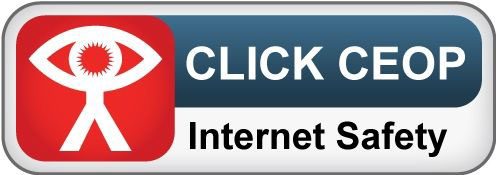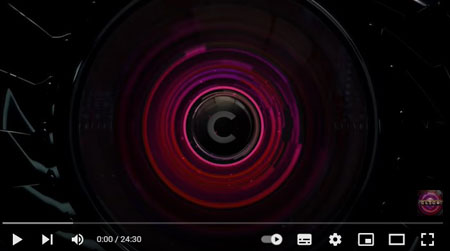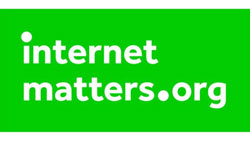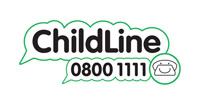We have compiled information from various websites that you may find useful. These links can be accessed by the tabs on the left.
- Overview
- 4 - 7 years
- 8 - 10 years
- 11 - 18 years
- E-Safety Newsletters
- Reporting a concern
- Parents
- Laws
- Useful Sites
School Network and Email
ICT including the Internet, learning platforms, e-mail and mobile technologies have become an important part of learning in our school. We expect all pupils to be safe and responsible when using any ICT. It is essential that pupils are aware of e-Safety and know how to stay safe when using any ICT. All pupils and staff using the schools computer equipment are required to agree to the schools Acceptable Use Policy. The full E-Safety Policy is available from our policies and documents page.
Activity on school equipment is monitored via security software and routinely reviewed by e-safety staff at school. Online filtering is also in place as part of our broadband contract. Pupil are issued a google account account when they start school here. This is a monitored system so pupils must be aware that any of their emails may be checked at any time for inappropriate material.
Sexting
It is increasingly common for children to send or request sexually explicit texts/messages to others. Once a photograph or movie is put online it can never be retrieved, even after it is deleted. Even images sent with applications such as ‘snap chat’, can be saved and distributed on the Internet. For more information visit the Thinkuknow website or contact the school.
Social Networking
Social Networking is a big part of everyday life. From Facebook, to Twitter, YouTube, Snapchat and online gaming, many enjoy communicating with friends and family this way. Parents should be aware though that no one under the age of 13 should have a Facebook account, as well as many of the other online social networking sites.
We recognise that Facebook is such a big part of many of pupils social lives and they should be taught how to use it safely and securely. We may organise specific lessons to teach the pupils how to apply their security settings within Facebook and will notify parents prior to this taking place. It is important that all parents know how their children are using Facebook and other similar sites.
Cyber-Bullying
Cyber-bullying refers to ‘bullying’ which is done online and includes:
- Posting offensive or hurtful messages on a social networking site and encouraging other people to do the same
- Sending abuse during instant message sessions.
- Creating fake ‘friends’ on social networking sites and encouraging the victim to communicate and send messages which are then made pubic and mocked.
- Sending abuse via email, text or instant messages.
Many can view these abusive messages, and the victim of cyber-bullying can feel exposed and humiliated. We treat cyber-bullying very seriously and the school sanction system is used where it comes to our attention.
Online Books to read to your child
Hanni and the Magic Window
Hanni has a magic window at home but when she sees something that upsets her, she struggles to explain what has happened. Use the follow up questions at the end of the story to explore your learners’ understanding of events and discuss who they could go to for help with a problem.
Digiduck Stories (by Childnet)
A collection of five stories created to help parents and teachers educate children aged 3–7 about online safety, with accompanying teaching activities.
It’s OK to Tell video
E-Safety Online Games
 Help Jesse, Tia and Mo to help collect badges as we learn and play. Collect Badges, Watching Videos, Sharing Pictures, Online gaming and Chatting online. https://www.thinkuknow.co.uk/4_7/
Help Jesse, Tia and Mo to help collect badges as we learn and play. Collect Badges, Watching Videos, Sharing Pictures, Online gaming and Chatting online. https://www.thinkuknow.co.uk/4_7/
The Cyber-Five – Hippo and Hedgehog
Videos and interactive sites
Have fun discovering videos and games with the NetSmartz Kids characters.
The Share Aware campaign aims to give parents the tools to feel confident to have these conversations. Some recommended videos are:
Games about online safety
This game lets children play as a little robotic Internaut, learning all about cyberbullying, phishing, data protection, and more. This is taught through a variety of mini-games that are spread out across floating islands. https://beinternetawesome.withgoogle.com/en_us/interland
CEOP Let’s talk about…
https://www.thinkuknow.co.uk/11_18/
- Social Media Community Guidelines
- Joining social media
- Social media conversation starter
- Exploring your identity online
- Sharing pictures and videos
- Video chat
- Watching videos online – conversation starters
- CEOP – Nudes sharing naked or semi-naked images
- Livestreaming – Tips for safer live streaming
- Live streaming – starter conversation
- Being a positive bystander
- Critical thinking online
- Group chat
To help you stay safe online there is a series that consists of six short films for students to help empower the use of social media safely and responsibly. The videos look at the ways in which the internet and digital technology can be used positively as well as identifying some of the most common issues you may face (or have already faced) when using the internet and social media.
Reporting abuse
The symbol on the ‘CEOP Internet Safety’ button represents the Virtual Global Taskforce (VGT), a group of law enforcement agencies who work together to fight online abuse relating to children. If you click on the button you will be reporting a problem directly to someone at CEOP (the Child Exploitation and Online Protection Agency) You are then likely to be contacted by a social worker or a police officer, to talk through your report in more detail. They need to do this to make sure you are safe. It is also a good idea to talk to your parents about your report to CEOP, although if your report concerns a family member, CEOP will not make contact with them until an investigation has been completed.
If you do not want to make a report by pressing the button but are still worried about something online, then please talk to one of the Pastoral team or to an adult you can trust.
Reporting and blocking on social media: https://www.thinkuknow.co.uk/11_18/lets-talk-about/online-safety/reporting-and-blocking/
Reporting Nude Images: https://www.thinkuknow.co.uk/11_18/lets-talk-about/online-safety/reporting-nude-images/
A guide to parent controls
 Kooth is a web based confidential support service available to young people. Kooth provides a safe and secure means of accessing mental health and wellbeing support designed specifically for young people. Kooth offers young people the opportunity to have a text-based conversation with a qualified counsellor. Counsellors are available from 12noon to 10pm on weekdays and 6pm to 10 pm at weekends, every day of the year on a drop-in basis. Young people can access regular booked online counselling sessions as needed. Outside counselling hours’ young people can message our team and get support within 24 hours. When students register with Kooth they will have support available to them now and in the future. Support can be gained not only through counselling but articles, forums and discussion boards. All content is age appropriate, clinically approved and fully moderated. To find out more visit www.Koothplc.com (
Kooth is a web based confidential support service available to young people. Kooth provides a safe and secure means of accessing mental health and wellbeing support designed specifically for young people. Kooth offers young people the opportunity to have a text-based conversation with a qualified counsellor. Counsellors are available from 12noon to 10pm on weekdays and 6pm to 10 pm at weekends, every day of the year on a drop-in basis. Young people can access regular booked online counselling sessions as needed. Outside counselling hours’ young people can message our team and get support within 24 hours. When students register with Kooth they will have support available to them now and in the future. Support can be gained not only through counselling but articles, forums and discussion boards. All content is age appropriate, clinically approved and fully moderated. To find out more visit www.Koothplc.com (
Support your children and enjoy being safer online as a family, using our home activity sheets and films on a range of online safety topics. https://www.thinkuknow.co.uk/parents/home-activity-worksheets/
Gaming: What parents and carers need to know. https://www.thinkuknow.co.uk/parents/articles/gaming/
BBC – How can we keep teenagers safe online? We look at a new AI system that monitors video content on the fly and blurs anything unsuitable before kids see it. But can tech really help solve the problems that tech creates?
 We are a non-profit organisation and our objective is to support educators with the planning, integration and deployment of technology to complement teaching. We believe that the development of digital skills will help to raise children’s aspirations and encourage them to take their place in the global economy. We teach skills such as blogging, publishing, programming, film making, animation, music production and graphics – all essential skills for the digital citizens of tomorrow.
We are a non-profit organisation and our objective is to support educators with the planning, integration and deployment of technology to complement teaching. We believe that the development of digital skills will help to raise children’s aspirations and encourage them to take their place in the global economy. We teach skills such as blogging, publishing, programming, film making, animation, music production and graphics – all essential skills for the digital citizens of tomorrow.
 Kids today face a very different set of challenges. There’s a whole new landscape where a child’s relationship with technology and normal sexual development overlap, with a whole new set of experiences online. And they need your help to navigate it safely. https://parents.thorn.org/
Kids today face a very different set of challenges. There’s a whole new landscape where a child’s relationship with technology and normal sexual development overlap, with a whole new set of experiences online. And they need your help to navigate it safely. https://parents.thorn.org/
 5 Best Antivirus Software With Free Parental Controls in 2023. https://www.safetydetectives.com/blog/top-antivirus-with-parental-control/
5 Best Antivirus Software With Free Parental Controls in 2023. https://www.safetydetectives.com/blog/top-antivirus-with-parental-control/
 NSPCC – Understand online games. https://www.nspcc.org.uk/keeping-children-safe/online-safety/online-games/
NSPCC – Understand online games. https://www.nspcc.org.uk/keeping-children-safe/online-safety/online-games/
Internet Matters – Protecting kids from explicit content. https://www.internetmatters.org/issues/inappropriate-content/
 Produced in collaboration with Home Office PREVENT and the West Midlands Police Crime Commissioner, Safety Net is a unique educational resource and training programme designed to provide the tools and confidence to engage children and their parents, in a concerted effort to encourage safe online practice in the home.
Produced in collaboration with Home Office PREVENT and the West Midlands Police Crime Commissioner, Safety Net is a unique educational resource and training programme designed to provide the tools and confidence to engage children and their parents, in a concerted effort to encourage safe online practice in the home.
Computer Related Laws
Computer Misuse Act 1990
The Computer Misuse Act (1990) was introduced to secure computer material against unauthorised access or modification. Three categories of criminal offences were established to cover the following conduct:
- Unauthorised access to computer material (basic hacking) including the illicit copying of software held in any computer. Penalty: up to six months of imprisonment or up to a £5,000 fine.
- Unauthorised access with intent to commit or facilitate commission of further offences, which covers more serious cases of hacking. Penalty: up to five years of imprisonment and an unlimited fine.
- Unauthorised modification of computer material, which includes:
i. intentional and unauthorised destruction of software or data
ii. the circulation of ‘infected’ materials on-line
iii. an unauthorised addition of a password to a data file.
Copyright
The Copyright, Design and Patents Act (1988) is applicable to all types of creations, including text, graphics and sounds by an author or an artist. This includes any which are accessible through the University’s IT facilities and network. Any unloading, downloading or printing of information through on-line technologies, which is not authorised by the copyright owner will be deemed to be an infringement of his/her rights.
Some types of infringement give rise to criminal offences, the penalties for which are up to two years imprisonment or an unlimited fine. It is also possible for the copyright owner to claim compensation or to have infringing activities prevented by injunction.
Link to latest revisions:
Data Protection
The Data Protection Act (1998) concerns the processing of information about living individuals. It gives rights to those individuals about whom information is recorded and demands good practice in handling information about people.
Every person or organisation holding personal data (data controller) must be registered with the Information Commissioner.
Please visit Data Protection Policy for further information.
Link to latest revisions:
https://www.gov.uk/data-protection
Official Secrets Act
Link to latest revisions:
https://www.legislation.gov.uk/ukpga/Geo5/1-2/28/contents
Defamation Act 2013
Link to latest revisions:
https://www.legislation.gov.uk/ukpga/2013/26/contents/enacted
This page is currently under construction. We are currently adding more links to useful websites.
A guide to parent controls
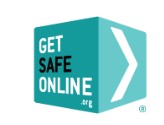
Get Safe Online is the UK’s leading internet safety website. We provide unbiased, factual and easy-to-understand information on online safety.

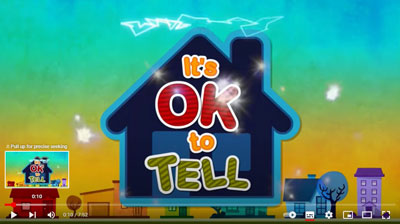


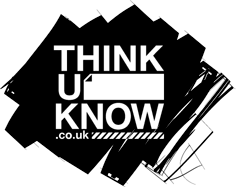 https://www.thinkuknow.co.uk/8_10/
https://www.thinkuknow.co.uk/8_10/